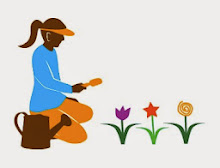"The only thing necessary for the triumph of evil, is for good men to do nothing." ~Edmund Burke
Recent stories about bullying in the news have shocked and saddened us all. Strangely absent from most news pieces is the experience of the ever present ”bystander.” This the child who stands by, inactive, frozen by fear or apathy. Though we may not all have tales of being the victim of a school yard bully, we have all had the experience of being "the bystander.” The effects of bystander inaction on the bully victim are obvious; but, did you know that the bystander suffers as well?
A recent study showed that children who witness bullying may suffer more than the victim. The study found that bystanders were relatively more likely to report depression, anxiety and other psychological problems.* Confronting a bully is difficult for any child. The fear of embarrassment or retaliation can be debilitating. Our job as parents is to train our children to be empathetic, and to teach them that they have a responsibility to act whenever they witness the victimization of a peer.
Below are strategies for our children that may make the task a bit easier:
1. Tell an adult. Request anonymity if necessary.
2. Don’t provide an audience for the bully. Encourage others to walk away.
3. Confront the bully by asking him/her to stop. Use caution. Do not confront a bully if you fear that your physical well being is at risk.
4. Encourage the victim to tell an adult. Offer to go with him.
5. Utilize school program for reporting bullying.
Discuss and role play these strategies with your child. Making these topics part of regular conversation with our children will serve to cultivate the compassion and courage necessary for them to step out of the role as bystander, standing up to make a difference for their own well-being and that of those around them.
~Sheila~
*Source: Rivers et al. "Observing bullying at school: The mental health implications of witness status." School Psychology Quarterly, 2009; 24 (4): 211.
© 2010 Gardener Parenting Consultants, LLC
Subscribe to:
Post Comments (Atom)


No comments:
Post a Comment